Zero waste lifestyle: how to reduce your ecological footprint
What is zero waste?
The zero waste strategy is very simple: reduce the amount of waste you produce each year by adopting responsible, minimalist lifestyle habits. Live better, consume less!
It's sad to learn that Canadians are the "champions" in terms of waste production. In fact, the average Canadian produces almost 720 kg of waste per year: Nova Scotians come out on top with 386 kg of annual waste, and Albertans come in last, with 1,007 kg per year.
Less than a third of waste is redistributed in the corresponding facilities, so it is sent to waste treatment plants. That said, these plants are very expensive, and not all cities can afford them. So what happens to our waste? It's simply dumped in open-air landfills where its toxic fumes can circulate freely. It's no understatement to say that existing composting facilities in Canada are only being used at 38% of capacity, and could hold another 1.6 million tonnes!1
It was to make a difference in the world for our present and future that the zero waste strategy was created. On the one hand, the strategy suggests modifying waste storage processes, and on the other, modifying transformation processes. The zero waste approach therefore proposes an alternative waste management approach2.
The zero-waste strategy has been proven to be beneficial for the planet, without taking up much more of our time or costing us more. All you need to do is make the right decisions, prepare in advance and go for it!
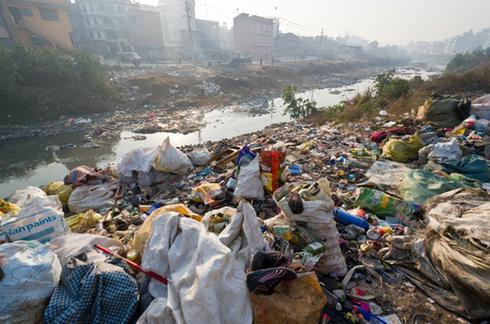
Why do we hear so much about zero waste?
We're hearing so much about zero waste because the ecological cause has never been so close to people's hearts. Scientists, activists and celebrities all agree that our planet is in danger. Many retort: the planet is strong, it's going to hold out. Of course it will! But at what cost? No more vegetation? No more pure water? A sun so hot it prevents us from setting foot outside in the afternoon? The alarm call is serious, very serious. We must stop denigrating science and closing our eyes. This is all very serious.
Every day, mankind produces billions of tons of waste, leading to global warming and the poisoning of our land and water. Mankind, as well as vegetation and animals, are already paying a heavy price for the mistakes of the past. If the deterioration of our planet goes unchecked, the consequences will be catastrophic in the not-too-distant future.
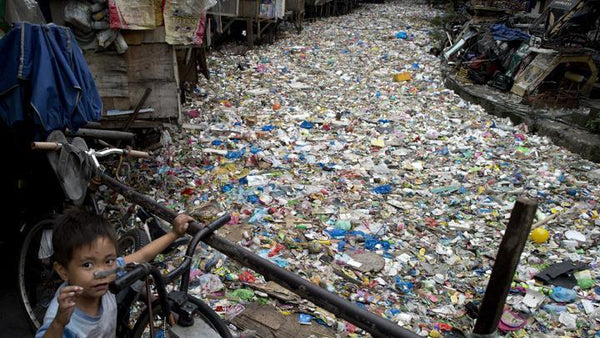
What are the effects of zero waste on the environment?
We have already reached the +2°C mark in global warming, 32 years ahead of the previously estimated date (2050). "Beyond +2°C, we will begin to move away from the current climate system, and at +4°C, we will enter an unknown model.declared climatologist Hervé Le Treut in December 2015.
According to leading experts in the field, it's not too late to stabilize climate degradation, but it is important to act quickly, and above all, to act now.
The zero waste strategy is THE step consumers can take to save the planet. Indeed, an ecological and minimalist lifestyle could stabilize the decline of this planet that has supported us for so long. But how?
Let's take a simple example: plastic bags. Did you know that their production uses petroleum products, water and energy, and emits greenhouse gases which, among other things, are responsible for global warming? What's more, the end-of-life of plastic bags is very harmful to the environment, since it's not profitable to recycle them. That's right! Plastic bags are too light, they blow here and there on the wind, in cities as much as in nature, and recycling them would consume more resources than they give back.3. As a result, 80% of plastic bags are neither recycled nor reused. By opting for reusable bags, we greatly reduce our ecological impact. The zero waste strategy brings these kinds of environmental benefits: less waste = less energy/water/gas/oil used.
It's easy to take hundreds of small steps towards a greener world: saying no to plastic bags is one of them.

How to get started on zero waste?
World-renowned French author and activist Béa Johnson suggests the following principles: refuse, reduce, reuse, recycle and compost
1- RefuseA Zero Waste lifestyle always starts with making a decision: we have to learn to say yes to the environment and no to the merchants who constantly offer us flyers, paper bills, over-packaged groceries and plastic bags. We have to accept the fact that a few people around us will raise an eyebrow at our new lifestyle. We also need to prepare ourselves, because a transitional phase is mandatory: using what we already have at home before jumping headlong into purchasing, with a view to going green. For example, I own a lot of plastic tupperware dishes. I know they're not ideal in environmental terms, but throwing them away would be worse. So I'm going to wear them out before switching to glass and/or cotton bags.
2- ReduceA Zero Waste lifestyle implies a major reduction in spending and use. The right question will always be: do I really need it? That's the question we have to ask ourselves, over and over again. A good idea would be to do a thorough clean-up to see what we keep, what we can give away and what we can reuse. It takes time, but we're so proud when it's done! And don't forget that minimalism rhymes with ease.
3- ReuseA Zero Waste lifestyle encourages the reuse of goods. When I was little, my father always used our holey vests as hand towels in his garage, and we always donated outgrown clothes to thrift stores. Without even knowing it, my parents were subtly teaching me the zero waste strategy. Over the years, I've continued these little habits, especially when it comes to donating clothes I no longer wear to thrift stores...and while we're at it, why not take the opportunity to have a look? Thrift stores are full of little finds and represent another step towards the zero waste strategy.
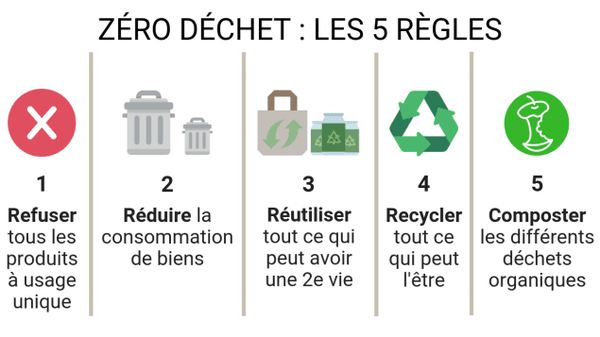
4- RecycleRecycling: a must in the Zero Waste lifestyle! Recycling is the reintroduction of waste into a production cycle to make new products. It's probably the step we all take, since awareness campaigns began as early as the early 1980s in many Canadian cities, and even earlier in Alberta, where recycling regulations for plastic soft drink and juice containers were put in place as early as 1972. Recycling means ensuring that certain materials, such as cardboard, plastic, glass, porcelain, light bulbs, metal (and much more besides) don't end up in landfill sites.
5- CompostingLast but not least on the road to a zero-waste lifestyle. Composting seems to scare a lot of people, but there's no such thing as a zero-waste lifestyle. Once the transition phase is over, it couldn't be easier. I once had a garden adjacent to my townhouse; all I had to do was open the door to my backyard and throw in my compostable waste. I looked really fancy in my pajamas tossing my eggshells and vegetable peelings in after my morning omelet. Nevertheless, the vegetables that grew from that garden were delicious, and fertilized with 100% natural, 100% free compost! Speaking of vegetable peelings, you can easily reuse them in the kitchen to avoid throwing them away, especially if you don't have a garden. For example, you can add them to a mixture of vinegar, sugar and salt to make a homemade marinade. Another good tip is to keep lemon peel in the freezer, waiting to be mixed with white vinegar: it becomes an excellent all-natural cleaning product.
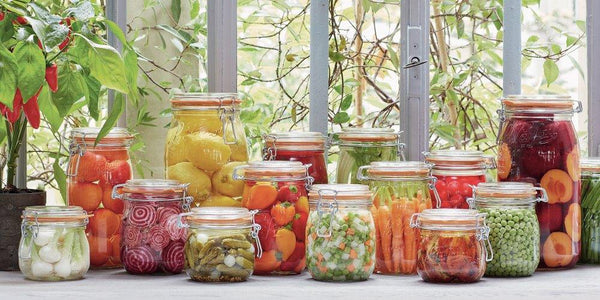
Is zero waste expensive?
After the transition phase, a zero-waste lifestyle can save you between 20% and 40% on your final bill. For example, I encourage you to learn to wash what can be washed: diapers, cleaning pads, coffee filters, certain tissues... I even have a friend who cleans herself with a washcloth when she goes to the toilet, saving the paper for the "number twos". To each his own, but if it works for her, I say go!
Reuse also saves money: fabric softener sheets smell good and are effective for many uses, tin cans that, once properly cleaned, can be used as storage containers in the garage, the reverse side of printed paper can be used to take notes, plastic bottles can be used as bird feeders... not to mention everything that can be reused as decorative objects. So if you're the least bit artistic, let yourself go!
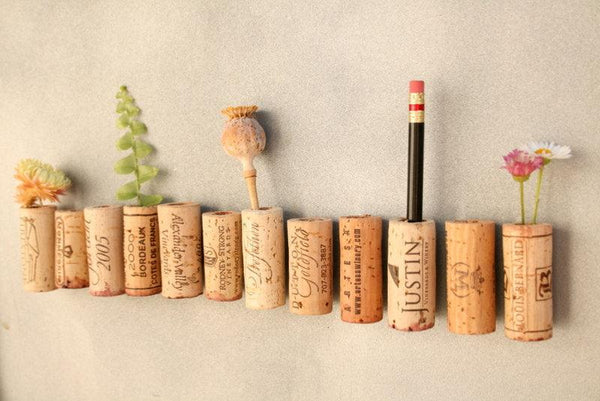
And above all, try to buy used. That way, you're helping to reduce waste... and you're also saving a lot of money. These days, there are a multitude of websites where we can find used items, and virtually every city is represented in sales pages on Facebook. And let's not forget garage sales, which still attract thousands of people every summer.
Another interesting challenge would be to learn how to concoct your own make-up or cleaning products. That's a real money-saver. Most of the ingredients can be found at the grocery store and cost next to nothing. There are lots of sites and videos on the Internet, and I strongly encourage you to do your own research.
Tips and tricks
- Bring a container at the grocery store and ask the butcher to put your meat in it. This may seem awkward at first, but don't worry, your butcher will be happy to help! Don't forget to ask the butcher to calculate the tare weight of your container, so you don't have to pay by weight.
- In the same vein, take your viennoiseries, croissants or bread in a cloth bag and your bulk dry goods in glass containers.
- Buy in bulk. Buying in bulk is definitely one of the gestures that will have the greatest impact on your zero waste strategy. Buying in bulk not only reduces waste, it also cuts down on unnecessary packaging. It helps reduce food waste by allowing consumers to buy only the quantities they need, thus avoiding unnecessary stockpiling in their cupboards.
- If a bulk item at the grocery store requires a code, instead of writing it down on a piece of paper, take the code and write it on the label. photo or write it down in a notes app on your phone. Do the same with your grocery list!
- Buy local. Food from far away has to be transported thousands of kilometers to reach our supermarkets. The environmental cost of transporting food is enormous! What's more, by buying local, we eat better, we eat fresh and we encourage our local businesses instead of multinationals.
In the light of all this information, there's only one logical question left: How can we reduce our ecological footprint?
By starting now!
Sources
2: Wikipedia
3: http://www.vedura.fr/environnement/pollution-sac-plastique
Photo 1: Philippine: photo credit Noel Celis
Photo 2: Nepal : Frank Bienewal,
Photo 3: NA
Photo 4: Le Parfait, F. Besset


